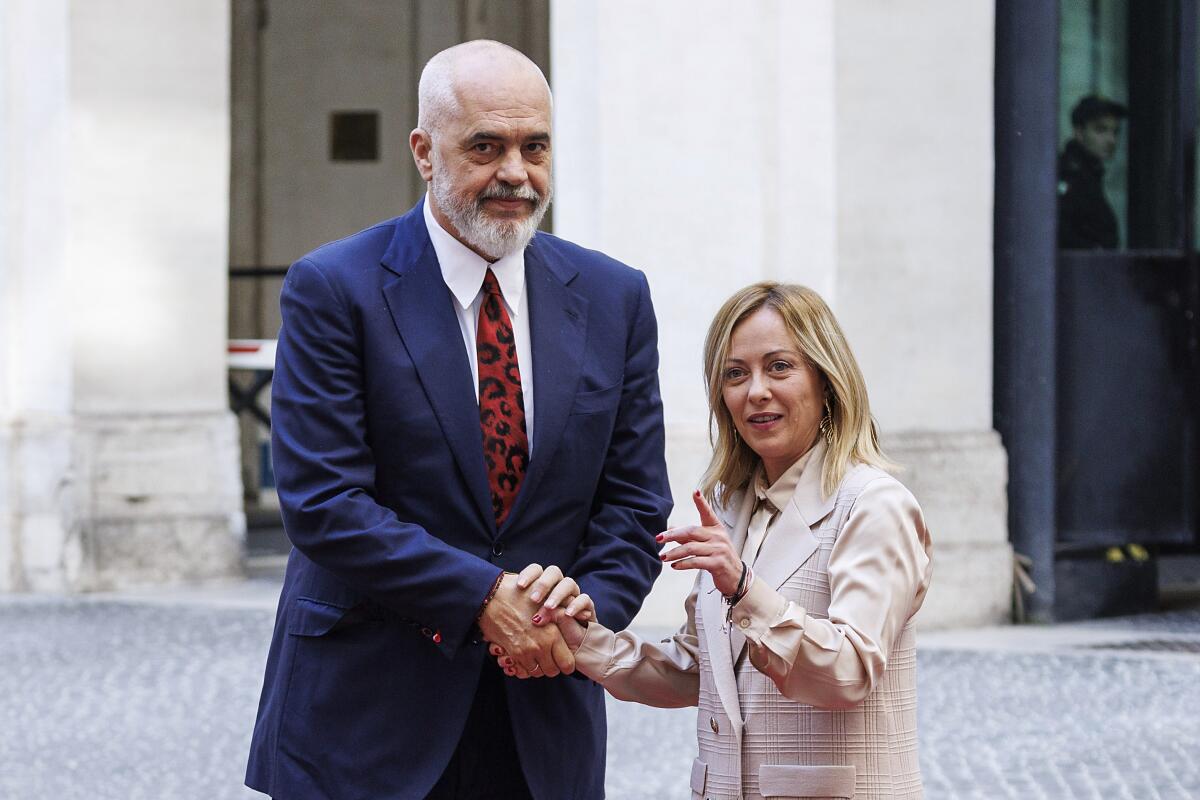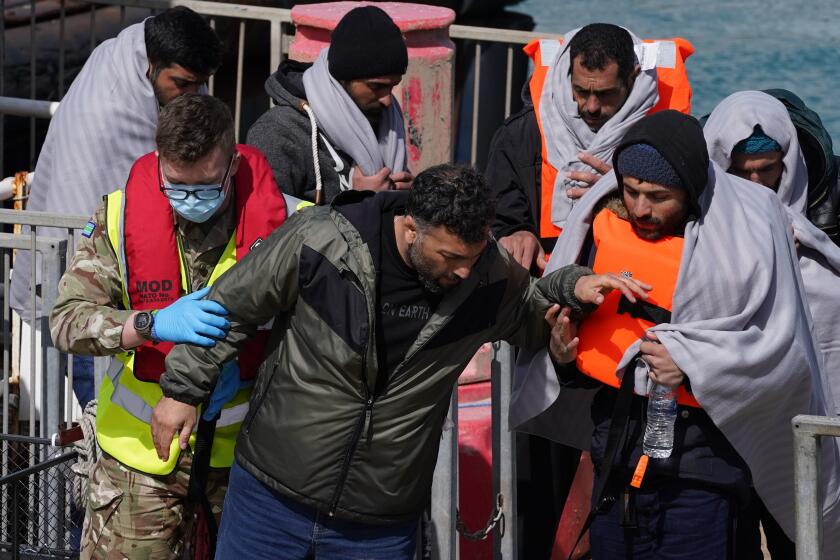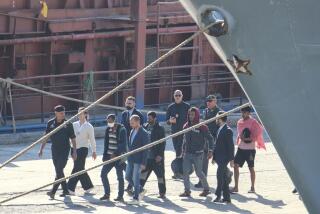Migration experts say Italy’s deal to have Albania house asylum seekers follows worrying trend

MILAN, Italy — Migration experts and activists this week panned an agreement between Italy and Albania that would direct thousands of migrants to the Balkan nation while their asylum applications are under review, saying it follows a worrying trend of European Union nations trying to manage migration by looking beyond the bloc’s borders.
The exact workings of the arrangement announced Monday as Albania’s leader visited Rome were still unknown, but it recalls a similar move by Denmark to locate asylum seekers in Africa that was later put on hold. The EU has requested details of the deal.
The European Commission, which supervises the application of European Union laws, suggested the deal could prove problematic if Italy sends migrants found in the EU’s territorial waters to a non-EU nation. It left a door open for the agreement if it is applied to migrants who were picked up in international waters.
“If you have a vessel within the territory, then you have the asylum procedure recommendation, which applies,” European Commission spokesperson Anitta Hipper told reporters in Brussels. That means anyone picked up in waters belonging to an EU member nation would have the right to request asylum there — and not to be transferred to a third country.
Italian Prime Minister Giorgia Meloni and Albanian Prime Minister Edi Rama said that under their initiative, aspiring EU member Albania agreed to temporarily shelter thousands of migrants with asylum petitions in Italy.
Britain’s Conservative government has struck a deal with Rwanda to send some asylum seekers thousands of miles away to the East African country.
Under the deal, if Italy rejects the asylum bids, Albania would then deport the migrants. Children and pregnant women will be excluded from the plan.
Italy will pay for the construction of two centers in Albania to hold up to 3,000 migrants at a time, or as many as 36,000 a year, during a fast-tracked 28-day application period. Albania would also provide security at the centers, which would be under Italian jurisdiction.
Meloni, who heads a far-right government, has taken other steps to try to stem the number of migrants arriving in Italy — which has surged to 145,794 so far this year, a 65% increase over 2022, following a failed agreement with Tunisia that the EU brokered.
“This is part of a broader trend toward externalization of migrant policy,” said Camille Le Coz, an associate director with the Migration Policy Institute Europe.
She noted that both Denmark and Britain, which tried to relocate some asylum seekers to Rwanda before an appeals court intervened, have so far failed to implement similar measures.
“In practice, it is a policy that is a little bit of theater, that in practice I don’t see how it will be implemented,” Le Coz said.
Danish lawmakers two years ago voted in favor of establishing a refugee reception center in another country, probably in Africa. But the idea was criticized as undermining international cooperation and has since been put on hold. Britain made a similar deal with Rwanda that is under consideration by the U.K. Supreme Court.
Chancellor Olaf Scholz and Germany’s state governors agree on new, stricter measures to try to curb migration, which has become a hot-button issue.
Experts see legal and jurisdictional issues with Italy’s proposal. For example, migrants rescued at sea by an Italian vessel “are technically on Italian territory,’’ said Giorgia Linardi, a spokesperson for the nonprofit maritime rescue group Sea-Watch.
If those people then “disembark in Albania, we are already talking about an act that goes against international law, but also against European law,” she said.
The accord as outlined so far also fails to address how Albania would manage to deport migrants back to their countries of origin when Italy has difficulty doing so.
“We are hugely worried, because the people who are rescued by these military ships and brought to centers in Albania risk a de facto deportation,’’ said Mattia Ferrari, an official of the charity rescue group Mediterranea Saving Humans. “The deportation risks violating international norms, but that above all wounds their humanity.”
The International Rescue Committee said that the deal “strikes a further blow to the principle of EU solidarity’’ and emphasized that closing borders would not stem migration.
“It’s time to shift the focus from walls to welcome,” said Susanna Zanfrini, the IRC’s Italy country director. “Closing borders will not deter people from seeking safety; instead it may force them to undertake even more perilous routes.”
More to Read
Sign up for Essential California
The most important California stories and recommendations in your inbox every morning.
You may occasionally receive promotional content from the Los Angeles Times.












